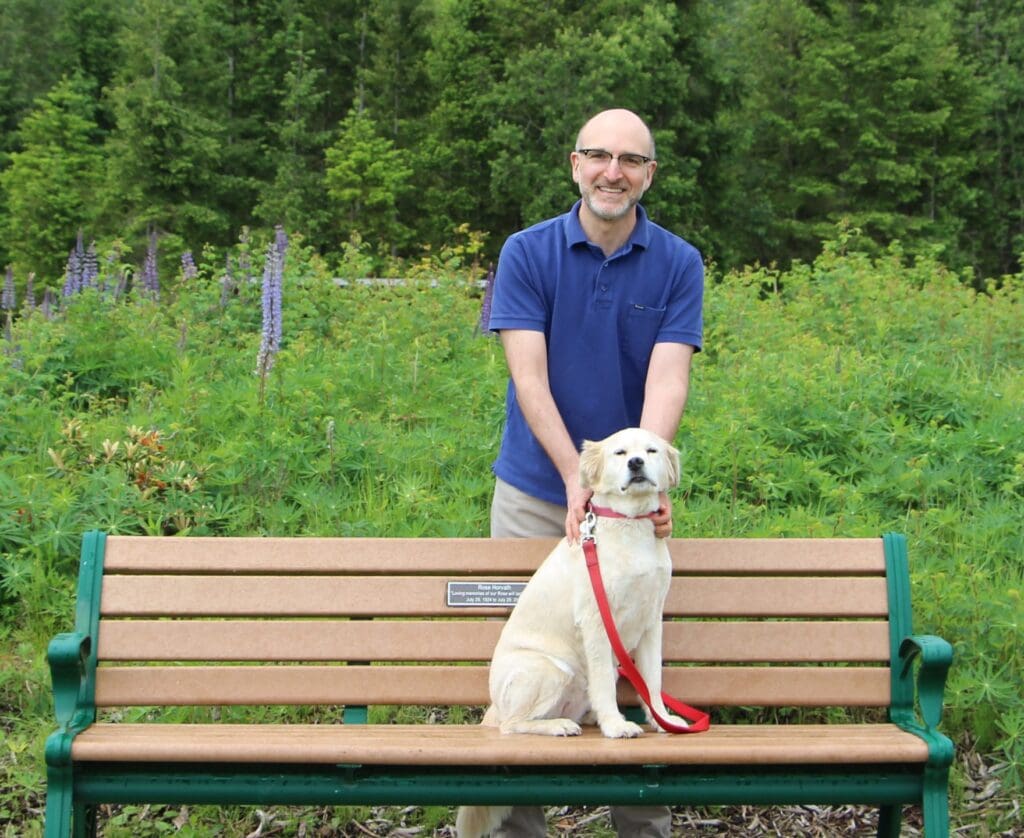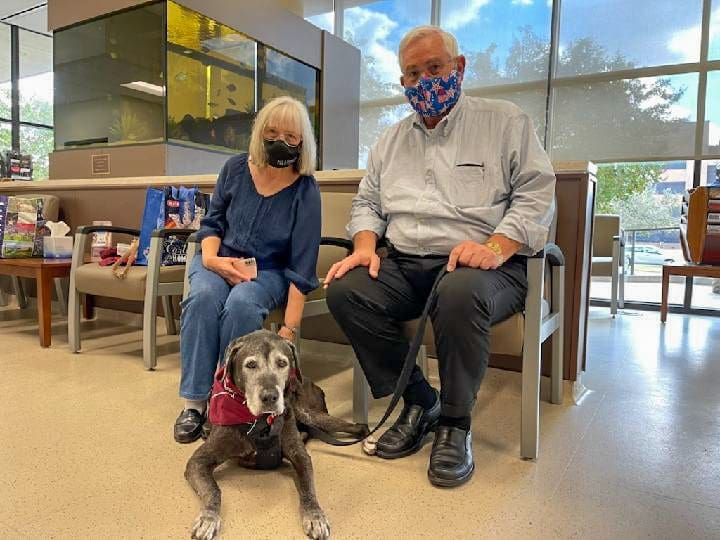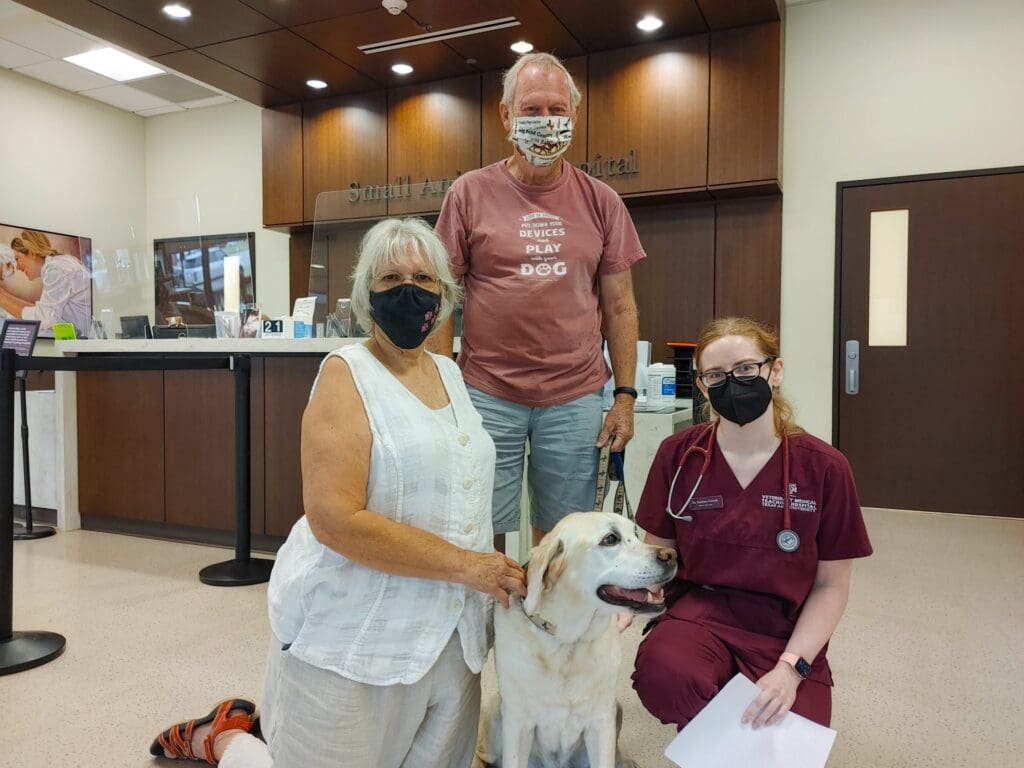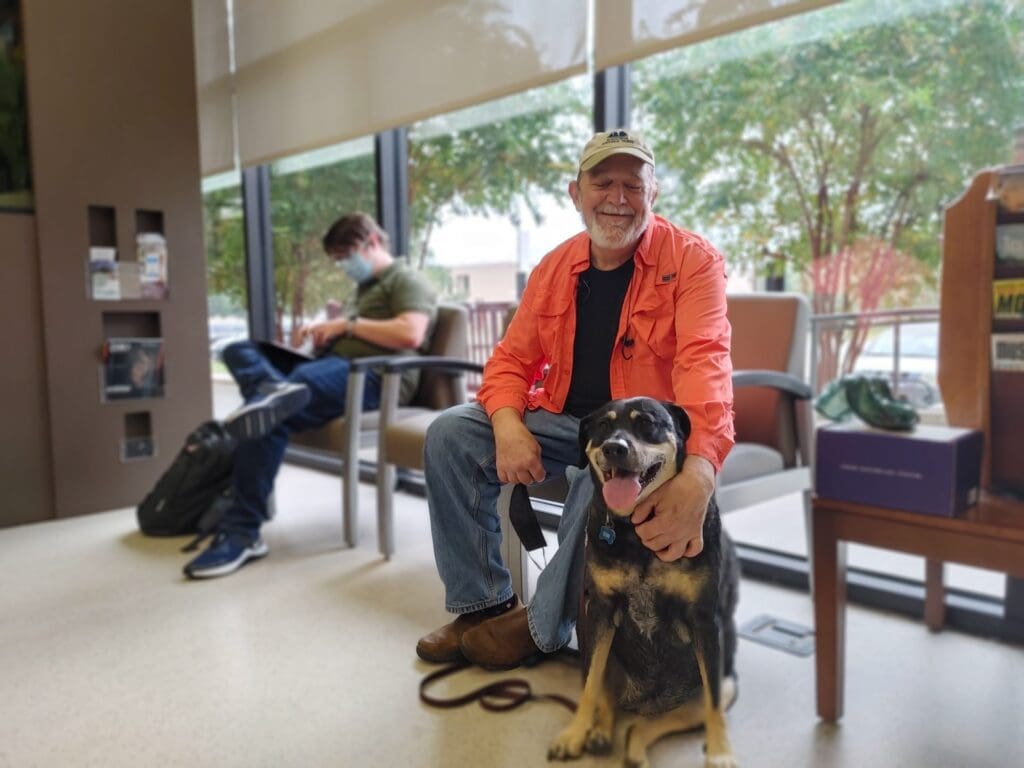Life wouldn’t be the same without our four-legged friends.
Whether you’re playing fetch at the park or cuddling on the couch, dogs provide love, companionship and support. They also can help us learn key insights on healthy aging.
Dogs get the same age-related diseases as humans, have a rich genetic makeup and live in the same environment. Therefore, by studying dog aging, researchers can learn how to help dogs and people live healthier, longer lives.
The Dog Aging Project, led by scientists at the University of Washington and Texas A&M University, brings together a team of researchers, veterinarians, dog owners and volunteers to learn how genes, lifestyle and environment influence aging, as well as how to prevent disease and increase lifespan for dogs and people.
More than 32,000 dogs and their owners are currently involved in the project — let’s get to know them.
Meet the doggos (and their owners)
Matt Kaeberlein, PhD, co-director of the Dog Aging Project, with his dogs Chloe (center) and Dobby (right)

Daniel Promislow, PhD, co-director of the Dog Aging Project, with his dog Frisbee

Ike and family

Beau and family

Zoe and family

Nominate a dog
Nominate a dog to join the study.
Participants can expect to fill out surveys about their dog’s lifestyle and health, collect saliva samples and occasionally complete activities with their dogs and report back on their dog’s performance.
Photo Caption: Vet team with pup Joe.


